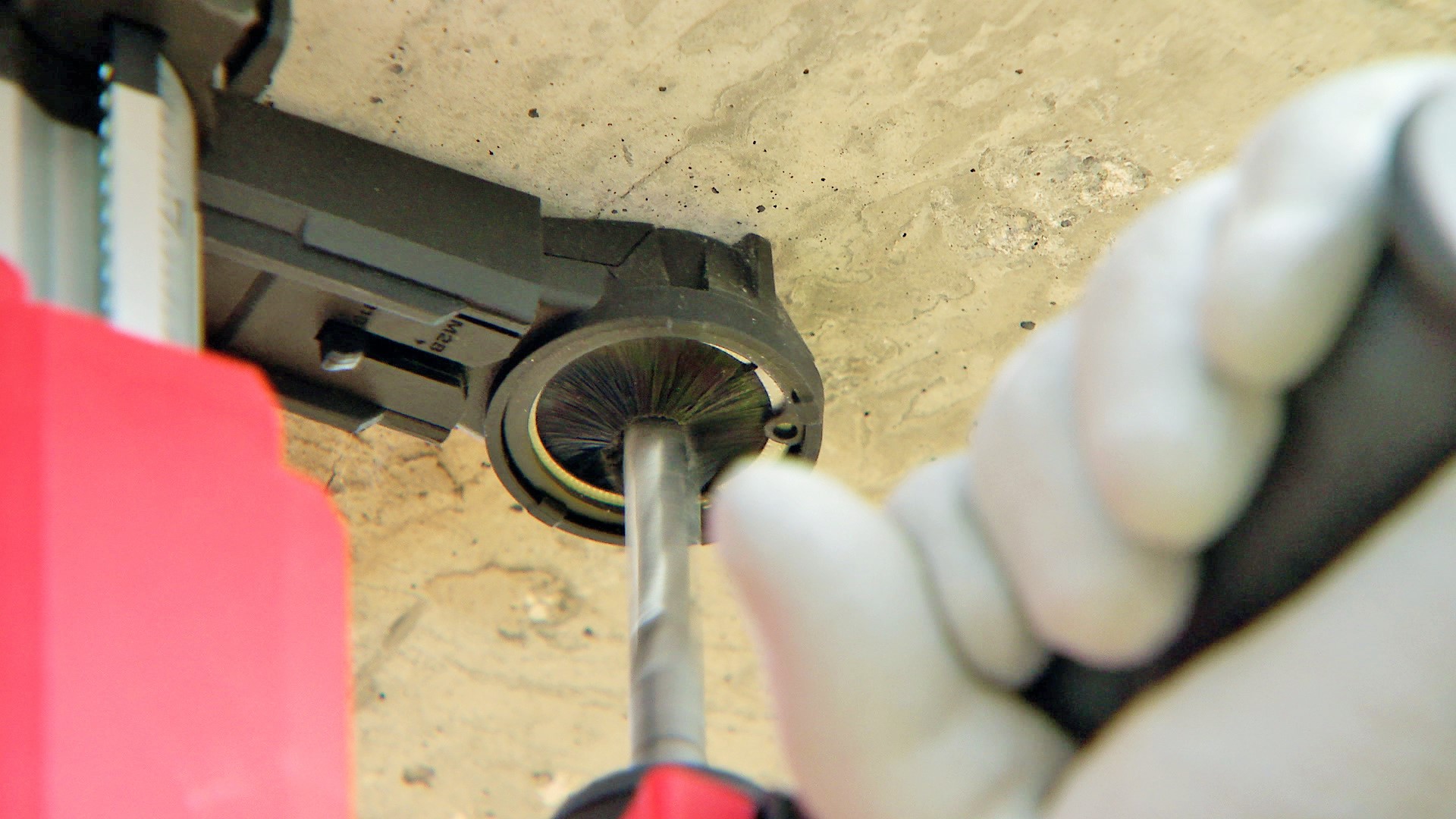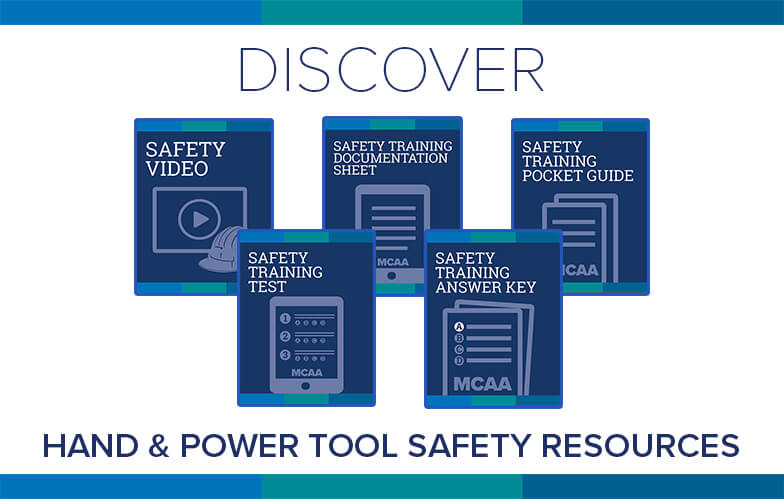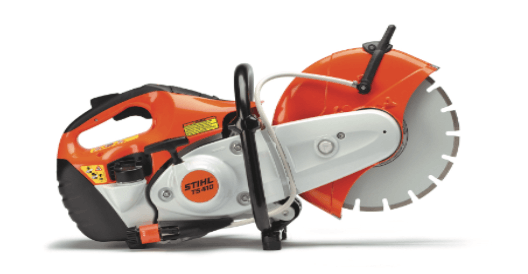
The Center for Construction Research and Training (CPWR) recently shared the results of research regarding the use of sharp vs. dull drill bits for drilling into concrete. The research was performed by Dr. David Rempel and his team at the University of California’s Center for Occupational and Environmental Health. In three experiments the research team showed that a worker’s exposure to noise, tool vibration and airborne silica dust increases substantially as a bit wears down from continued use.
The team designed a test bench system (pictured) that allows the researchers to test for and measure potential exposures to several hazards generated by different hammer drills – information that can help contractors and workers select and purchase safer tools. The test bench uses a mannequin torso attached to a slide mounted with equipment to measure a worker’s potential exposure to silica dust, noise, and the force and vibration that can lead to musculoskeletal injuries. The test bench also measures productivity – that is, how quickly the drill penetrates the concrete.
In their experiments, the team used a common hammer drill and carbide-tipped bit, isolating the effect of wear on the drill bit. As expected, heavily worn bits took much more time to penetrate the concrete than new ones, adding up to 60% to the time required to drill a 3” deep hole. Moreover, the worn bit increased the risk for illness and injury, generating about twice as much airborne silica dust, was almost two decibels (dBA) louder, and produced a small but significant increase in handle vibration. Combined, that means that a worker using a worn drill bit is exposed to more dust, noise and vibration, and for a longer period of time. These results underscore the importance of replacing worn bits.
In a separate study, the team found that the best measures of wear on a carbide-tipped bit were reduced width of the tip and rounding of the tip shoulders. Contractors and workers can check the condition of a bit by following these wear patterns.
While vacuums to control the dust and hearing protection will still be needed, the increase in productivity along with the reduced exposure to silica dust, noise, and vibration makes a strong safety and business case for regularly replacing worn drill bits.




